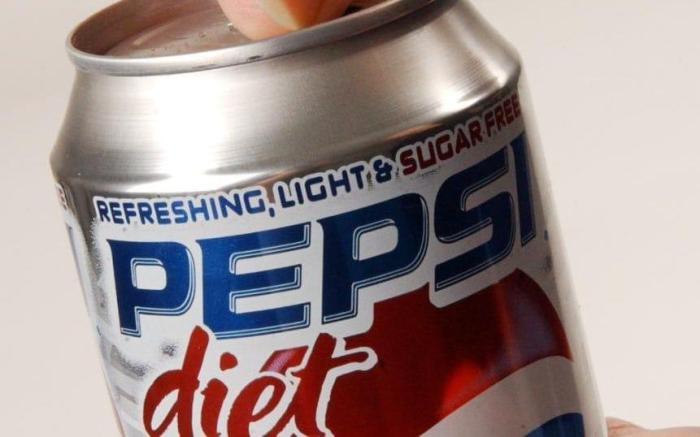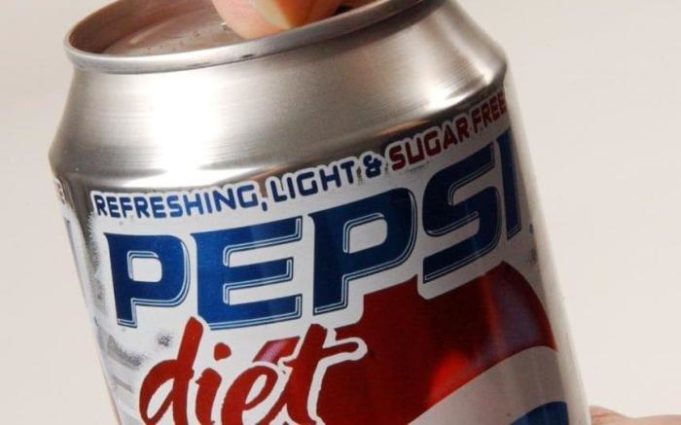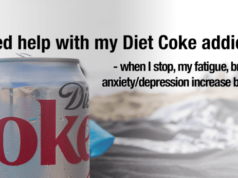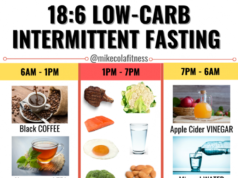Is diet soda bad for diabetics? This question has sparked debate among health professionals and individuals with diabetes alike. While diet soda seems like a healthier alternative to sugary drinks, the impact of artificial sweeteners on blood sugar regulation, metabolic health, and gut microbiome remains a subject of ongoing research. This article explores the potential benefits and risks of diet soda consumption for diabetics, shedding light on its complex relationship with blood sugar control and overall well-being.
The research suggests that diet soda may not be as harmless as it seems. While it doesn’t directly raise blood sugar levels, some studies indicate that artificial sweeteners can disrupt the body’s natural response to sugar, potentially leading to insulin resistance and metabolic complications. Additionally, diet soda’s effects on the gut microbiome, which plays a crucial role in regulating blood sugar, are still being investigated.
Diet Soda and Blood Sugar Control
While diet soda is marketed as a sugar-free option, its impact on blood sugar levels is not as straightforward as it may seem. Artificial sweeteners, the primary ingredient in diet soda, can have complex effects on the body, particularly for individuals with diabetes.
Artificial Sweeteners and Blood Sugar Levels
Artificial sweeteners are designed to provide sweetness without contributing to calorie intake or raising blood sugar levels. However, research suggests that these sweeteners may not be as innocuous as previously believed.
While artificial sweeteners do not directly raise blood sugar, they can trigger hormonal changes that may indirectly influence blood sugar control. Studies have shown that artificial sweeteners can:
- Alter gut bacteria composition: Artificial sweeteners can disrupt the balance of gut bacteria, which plays a crucial role in regulating blood sugar levels. Some studies suggest that artificial sweeteners may promote the growth of bacteria that are associated with insulin resistance, a condition where the body does not respond effectively to insulin, leading to elevated blood sugar levels.
- Increase insulin resistance: Some research indicates that regular consumption of artificial sweeteners may contribute to insulin resistance. This occurs when the body’s cells become less sensitive to insulin, the hormone responsible for regulating blood sugar. As a result, the pancreas has to produce more insulin to maintain normal blood sugar levels, potentially leading to a higher risk of type 2 diabetes.
- Stimulate insulin release: Despite not containing sugar, artificial sweeteners can trigger the release of insulin. This is because the taste buds send signals to the brain that mimic the response to real sugar, prompting the pancreas to release insulin. While this may seem beneficial, it can lead to fluctuations in blood sugar levels, especially in individuals with diabetes who are already struggling with insulin regulation.
Diet Soda and Insulin Spikes
The potential for diet soda to trigger insulin spikes in individuals with diabetes is a subject of ongoing research. While artificial sweeteners do not directly raise blood sugar, their ability to stimulate insulin release raises concerns.
“While artificial sweeteners do not directly raise blood sugar, they can trigger hormonal changes that may indirectly influence blood sugar control.”
Studies have shown that consuming diet soda can lead to increased insulin levels, even in the absence of sugar intake. This is because the artificial sweeteners in diet soda can activate the same taste receptors that are stimulated by sugar, triggering a physiological response that includes insulin release.
Correlation Between Diet Soda and Blood Sugar Fluctuations
Research findings on the correlation between diet soda consumption and blood sugar fluctuations are mixed. Some studies have observed an association between diet soda intake and increased blood sugar variability, particularly in individuals with diabetes.
For example, a study published in the journal “Diabetes Care” found that people with type 2 diabetes who consumed diet soda regularly had greater fluctuations in their blood sugar levels compared to those who did not consume diet soda.
However, other studies have failed to find a clear link between diet soda consumption and blood sugar fluctuations. More research is needed to fully understand the impact of diet soda on blood sugar control in individuals with diabetes.
Diet Soda and Metabolic Health: Is Diet Soda Bad For Diabetics
While diet soda is often marketed as a healthier alternative to regular soda, its impact on metabolic health, particularly for individuals with diabetes, is a subject of ongoing research and debate.
The Impact of Diet Soda on Insulin Sensitivity and Glucose Metabolism
Studies have investigated the potential effects of diet soda on insulin sensitivity and glucose metabolism. Some research suggests that artificial sweeteners, often found in diet soda, may interfere with the body’s natural response to sugar, potentially leading to:
* Increased insulin resistance: Insulin resistance occurs when the body’s cells do not respond properly to insulin, leading to higher blood sugar levels.
* Altered gut microbiota: Artificial sweeteners may disrupt the balance of gut bacteria, which plays a crucial role in regulating glucose metabolism.
* Changes in appetite and food cravings: Some studies suggest that artificial sweeteners may stimulate cravings for sugary foods, potentially contributing to weight gain and increased blood sugar levels.
It’s important to note that the findings are not conclusive, and more research is needed to fully understand the long-term metabolic effects of diet soda consumption.
Comparing the Metabolic Impact of Diet Soda and Regular Soda
While diet soda is generally considered a lower-calorie option, it’s not necessarily a metabolically neutral choice for diabetics.
* Regular soda: Regular soda is high in sugar and calories, which can significantly spike blood sugar levels and contribute to insulin resistance.
* Diet soda: While diet soda does not contain sugar, its potential impact on insulin sensitivity and gut microbiota may indirectly influence glucose metabolism.
It’s essential for diabetics to be mindful of their overall sugar intake and choose beverages that support healthy blood sugar control.
Potential Long-Term Health Risks Associated with Diet Soda Consumption for Diabetics
While the long-term effects of diet soda on diabetic individuals are still being studied, some potential health risks have been identified:
* Increased risk of metabolic syndrome: Metabolic syndrome is a cluster of conditions that increase the risk of heart disease, stroke, and type 2 diabetes.
* Weight gain: Some studies suggest that artificial sweeteners may lead to weight gain, which can exacerbate diabetes complications.
* Cardiovascular disease: Some research suggests a possible link between diet soda consumption and an increased risk of cardiovascular disease.
It’s crucial for diabetics to prioritize a healthy lifestyle, including a balanced diet and regular exercise, to manage their condition and minimize potential health risks.
Diet Soda and Gut Microbiome
The gut microbiome, a diverse community of microorganisms residing in the digestive tract, plays a crucial role in human health, including blood sugar regulation. Artificial sweeteners, often found in diet sodas, have been linked to alterations in gut bacteria composition, potentially impacting blood sugar control in diabetics.
Artificial Sweeteners and Gut Microbiome Composition, Is diet soda bad for diabetics
Artificial sweeteners, such as aspartame, sucralose, and saccharin, are non-nutritive sweeteners designed to provide sweetness without calories. However, their impact on the gut microbiome is a subject of ongoing research.
- Studies suggest that artificial sweeteners can disrupt the balance of gut bacteria, leading to an increase in certain types of bacteria while decreasing others. This shift in gut microbial composition is known as dysbiosis.
- For example, a study published in the journal “Nature” found that consuming artificial sweeteners in mice led to an increase in the abundance of *Bacteroides fragilis*, a bacterium associated with inflammation, while decreasing the abundance of *Akkermansia muciniphila*, a bacterium known for its beneficial effects on gut health.
Gut Microbiome and Blood Sugar Regulation
The gut microbiome plays a critical role in regulating blood sugar levels. Gut bacteria produce short-chain fatty acids (SCFAs), such as butyrate, propionate, and acetate, which have been shown to improve insulin sensitivity and reduce inflammation.
- SCFAs produced by gut bacteria can influence the production of glucagon-like peptide-1 (GLP-1), a hormone that stimulates insulin secretion and slows down gastric emptying.
- A healthy gut microbiome contributes to proper glucose metabolism and reduces the risk of developing type 2 diabetes.
Diet Soda and Gut Dysbiosis in Diabetics
While the exact link between diet soda consumption and gut dysbiosis in diabetics remains under investigation, emerging research suggests a potential connection.
- Studies have observed that individuals who regularly consume diet sodas may experience alterations in their gut microbiome, potentially leading to a decrease in beneficial bacteria and an increase in bacteria associated with inflammation and metabolic disorders.
- This gut dysbiosis may contribute to impaired blood sugar control, insulin resistance, and other metabolic complications in diabetics.
Diet Soda and Weight Management
For individuals with diabetes, managing weight is crucial for controlling blood sugar levels and preventing complications. Diet soda has often been touted as a calorie-free alternative to sugary drinks, potentially aiding in weight management. However, the role of diet soda in weight management for diabetics remains a subject of debate.
Impact of Diet Soda on Weight Loss
Diet soda’s impact on weight loss in diabetics is complex and not fully understood. Some studies suggest that diet soda may not be as effective for weight loss as previously believed. For instance, a 2015 study published in the journal *Obesity* found that people who consumed diet soda regularly were more likely to gain weight over time compared to those who didn’t. This could be due to various factors, including:
- Artificial Sweeteners and Appetite Regulation: Artificial sweeteners in diet soda may disrupt the body’s natural appetite regulation mechanisms, potentially leading to increased calorie intake and weight gain.
- Gut Microbiome Changes: Diet soda consumption may alter the composition of gut bacteria, potentially influencing metabolism and weight gain.
- Increased Cravings: Some individuals report experiencing increased cravings for sweet foods after consuming diet soda, leading to higher calorie intake.
Diet Soda vs. Sugar-Sweetened Beverages
Compared to sugar-sweetened beverages (SSBs), diet soda offers a significant reduction in calories. This calorie reduction can be beneficial for weight management in diabetics. However, it’s important to consider the potential downsides of diet soda, such as its impact on gut health and appetite regulation.
- Calorie Reduction: Diet soda provides zero calories, while SSBs contain a substantial amount of sugar and calories. This calorie difference can contribute to weight loss or weight management.
- Potential for Increased Hunger: While diet soda may reduce calorie intake, some studies suggest that it can lead to increased hunger and cravings, potentially offsetting the calorie reduction.
- Impact on Blood Sugar: Unlike SSBs, diet soda does not directly impact blood sugar levels. However, the potential for increased hunger and cravings could indirectly affect blood sugar control.
Pros and Cons of Diet Soda for Weight Management in Diabetics
| Pros | Cons |
|---|---|
| Zero calories, reducing overall calorie intake | Potential disruption of appetite regulation |
| May help reduce cravings for sugary drinks | Possible impact on gut microbiome |
| No direct impact on blood sugar levels | May lead to increased cravings for sweet foods |
Alternatives to Diet Soda

While diet soda may seem like a harmless alternative for individuals with diabetes, there are many healthier beverage choices that can satisfy your thirst without compromising your blood sugar control.
Healthy Beverage Alternatives for Diabetics
Here’s a list of refreshing and healthy beverages that can be enjoyed by individuals with diabetes:
- Water: The cornerstone of hydration, water is calorie-free, sugar-free, and essential for overall health. It helps regulate blood sugar levels, flushes out toxins, and keeps you feeling full.
- Unsweetened Tea: Green tea, black tea, and herbal teas are excellent options. They are naturally low in calories and sugar and offer various health benefits, including antioxidants and potential blood sugar regulation.
- Fruit-Infused Water: Add slices of fresh fruits like lemons, limes, oranges, berries, or cucumbers to your water for a flavorful and refreshing twist. This adds a touch of natural sweetness without the added sugar.
Tips for Reducing Cravings for Sugary Drinks
Managing cravings for sugary drinks can be challenging, but here are some tips to help you stay on track:
- Gradually Reduce Intake: Instead of abruptly cutting out sugary drinks, gradually decrease your consumption over time. This can help prevent withdrawal symptoms and make the transition smoother.
- Find Healthy Alternatives: Explore the options listed above and experiment with different flavors and combinations to find alternatives you enjoy.
- Distract Yourself: When cravings hit, try distracting yourself with activities like taking a walk, reading a book, or spending time with loved ones.
- Stay Hydrated: Drinking plenty of water can help curb cravings and keep you feeling full.
Importance of Hydration for Diabetes Management
Hydration plays a crucial role in managing diabetes:
- Blood Sugar Control: Water helps regulate blood sugar levels by diluting glucose in the bloodstream.
- Kidney Function: Proper hydration is essential for kidney function, which is vital for filtering waste products and regulating blood sugar levels.
- Overall Health: Hydration is essential for overall health and well-being, contributing to better energy levels, improved mood, and reduced risk of complications associated with diabetes.
Outcome Summary
Ultimately, the decision of whether or not to consume diet soda is a personal one. While it may seem like a safe alternative to sugary drinks, it’s important to be aware of the potential risks and weigh them against your individual health goals. Consulting with a healthcare professional can help you make informed decisions about your diet and beverage choices, especially if you have diabetes. Remember, staying hydrated with water, unsweetened tea, and fruit-infused water is always a healthy choice for individuals with diabetes.
Frequently Asked Questions
Can diet soda cause weight gain in diabetics?
While diet soda doesn’t contain calories, it may not be effective for weight management in diabetics. Some studies suggest that artificial sweeteners can disrupt appetite regulation and lead to increased cravings for sugary foods.
Is diet soda better than regular soda for diabetics?
Yes, diet soda is generally considered a better choice than regular soda for diabetics as it does not contain sugar and therefore does not directly raise blood sugar levels. However, it’s important to be aware of the potential risks associated with artificial sweeteners.
Are there any natural alternatives to diet soda?
Yes, there are plenty of healthy beverage alternatives for diabetics, including water, unsweetened tea, herbal teas, and fruit-infused water. These options provide hydration without the added sugars or artificial sweeteners.
While the debate about diet soda and its impact on diabetics continues, it’s important to remember that a balanced and healthy diet is crucial for managing blood sugar levels. A clean diet plan focused on whole, unprocessed foods can help regulate insulin response and promote overall well-being.
This approach, combined with regular exercise and monitoring, is likely to be more beneficial than relying on artificial sweeteners for managing diabetes.
While diet soda might seem like a harmless alternative for diabetics, recent studies suggest it could have negative impacts on blood sugar control. If you’re looking for healthy lunch options, check out these ideas for diet lunch that are both delicious and diabetes-friendly.
Remember, focusing on whole foods and balanced meals is key for managing diabetes, and that includes staying hydrated with water or unsweetened beverages.
The impact of diet soda on diabetics is a complex issue with no easy answers. While it might seem like a healthier choice, the long-term effects are still being studied. If you’re considering diet soda as part of your diabetes management, it’s crucial to understand the potential benefits and drawbacks.
A great resource for learning more about the “if diet” aspect of this question is this website. Ultimately, the best approach for managing diabetes involves working closely with your doctor to create a personalized plan that suits your individual needs.
























